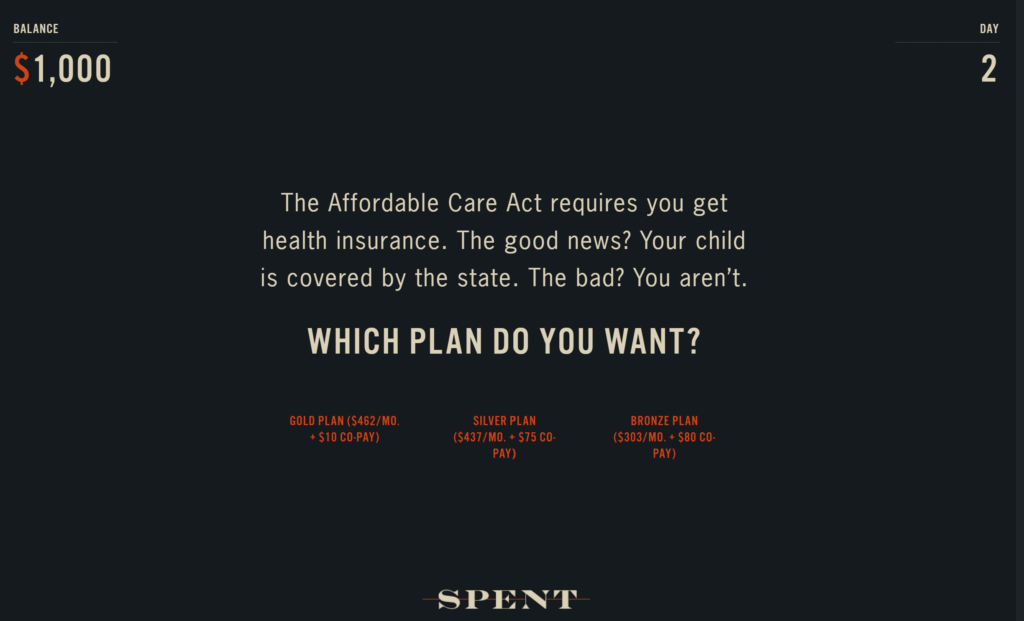
A few times throughout the quarter we’ve discussed whether life is a game. While I’m certain no one answer can be unanimously agreed upon, I think playing Spent this week provided more insight to answering this question. The game highlights some very concrete lose states and failures found in life that embody the concept of gamification.

In Spent, many expenses were compulsory. The game provided a quick reason certain expenses were necessary, and I had no option to protest or refuse. On the surface, this inability to refuse is obviously because of the game’s procedural rhetoric. Players can only engage with the specific game mechanics given to them, allowing them to understand the themes of the game. Additionally, my inability to refuse rules of the game served as a mirror to the same phenomenon present in real life. For instance, in the game’s opening I received a prompt saying that, because of the Affordable Care Act, I had to get health insurance. This prompt recreated the very real ACA which requires most individuals to have some form of health insurance or risk monetary punishment. The benefits of health insurance are numerous and obvious, but the pricing of such coverage negatively impacts individuals who have a low income more than those who have a high income.

The more the player continues the game, the more expenses they incur. Similarly, the longer a person lives, the more expenses they become responsible for. You must buy groceries to feed yourself. You must pay for care insurance in order to keep your car and go to work. You must refrain from doing certain tasks to avoid incurring fines. The answer to whether life is a game may never be agreed upon, but Spent does an excellent job of drawing comparisons between the two, specifically the similarities between players following the procedural rhetoric of games and people following the established rules of various systems in real life.

I really like your post and how you draw comparisons. I think you point to the level of investment that society demands for us to engage in social structures. Some of these investments are necessary, like groceries, but others are more prescriptive. I found your framing of these investments as different rules effective as it conveyed the degree of choice we get and also I felt like it conveyed the concept of negative freedom rather than positive freedom